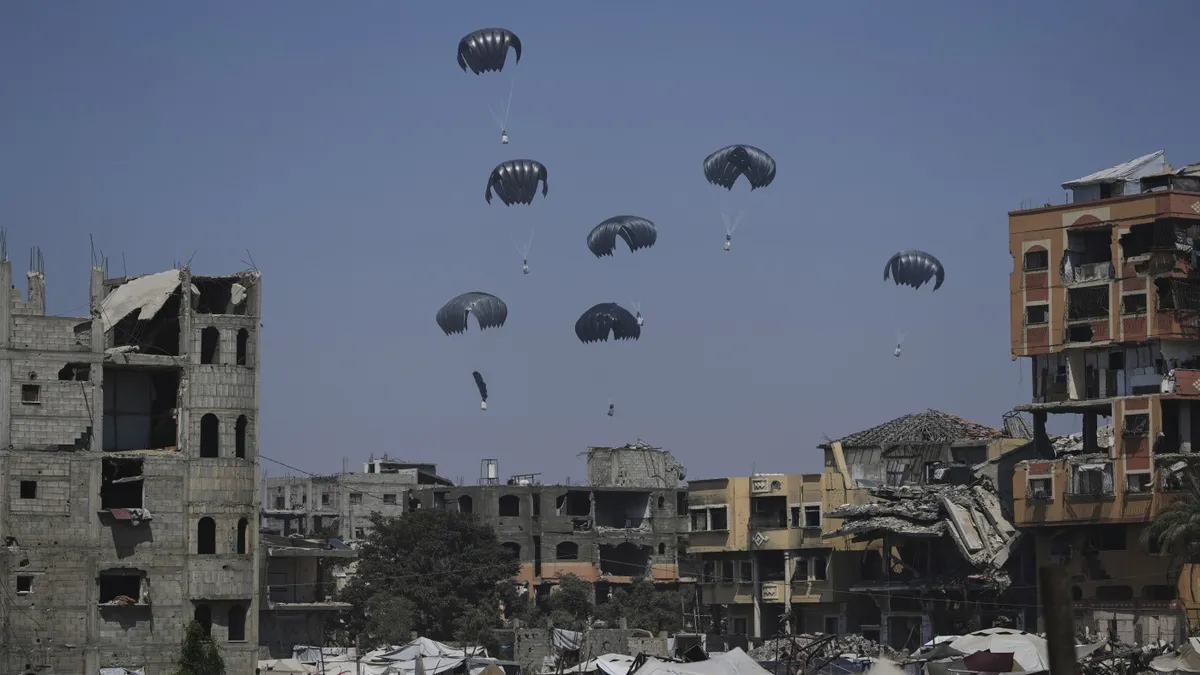
Israel's military has officially announced a daily pause in fighting for ten hours, aimed at facilitating the flow of humanitarian aid into Gaza's most densely populated areas. This decision, revealed over the weekend, marks a significant shift in Israel's military operations amidst growing international pressure regarding the humanitarian crisis in the region.
The daily respite in military operations commenced on Sunday at 10 a.m. and will continue until 8 p.m. in specific regions such as Gaza City, Deir al Balah, and Al-Mawasi, which is notable for its large tent camp along the coast. These areas have been designated by Israel as safe zones for Palestinians to seek refuge from ongoing violence. On the first day of this pause, limited supplies of aid were successfully delivered into Gaza, offering a glimmer of hope to those affected by the crisis.
The change in Israel's military strategy comes as the international community expresses growing concern over the severe restrictions on humanitarian aid entering Gaza. The World Health Organization has raised alarms about the potential for mass starvation in the region, while the head of the U.N. World Food Program reported that the hunger crisis has reached unprecedented levels of desperation. According to Gaza's health ministry, since the conflict escalated in October 2023, 133 Palestinians have died from hunger and malnutrition, including a tragic 87 children.
Despite these alarming statistics, the Israeli military has refuted claims of starvation in Gaza, labeling them as misinformation propagated by Hamas. Israeli officials have accused Hamas of inciting chaos around aid distribution points, complicating the delivery of necessary supplies. In a tragic incident last Sunday, local health authorities reported that at least 94 Palestinians were killed by Israeli forces while attempting to obtain food aid.
In other developments, the U.S. recently withdrew from the latest round of ceasefire negotiations held in Doha, Qatar. This was part of ongoing efforts to resolve the conflict that ignited following a Hamas-led attack on Israel, which resulted in approximately 1,200 fatalities. Special Envoy Steve Witkoff noted that Hamas appears to be acting without coordination or good faith, prompting the U.S. to explore alternative strategies to secure the release of hostages and foster a stable environment for Gaza's residents.
Israel emphasized that the decision to pause fighting was made in collaboration with the United Nations and various international organizations. As part of its commitment to facilitating humanitarian efforts, Israel has resumed airdrops of essential items like flour, sugar, and canned food. Additionally, it announced an increase in water output in Gaza by reconnecting a power line to a desalination facility and establishing secure routes for U.N. aid trucks to distribute food and medicine.
On Sunday, the Jordanian Armed Forces reported that they had conducted three airdrops of food aid and humanitarian supplies, totaling 25 tons, with one operation coordinated alongside the United Arab Emirates. Furthermore, Jordan is preparing to send 60 trucks filled with food supplies into Gaza. The Egyptian Red Crescent also contributed by dispatching a caravan of over 100 aid trucks, delivering more than 1,200 tons of food, including approximately 840 tons of flour.
As the humanitarian situation in Gaza continues to deteriorate, the international community watches closely, hoping for a lasting resolution that prioritizes the welfare of innocent civilians caught in the crossfire.